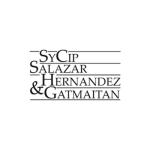Public apostilled documents executed outside the Philippines no longer need to be authenticated by the Philippine Department of Foreign Affairs (DFA) in order for those documents to be considered authentic in the Philippines. This is because on May 14 2019, the Philippines became a party to the 1961 Convention Abolishing the Requirement of Legalisation for Foreign Public Documents, or the Apostille Convention.
The Apostille Convention has streamlined the authentication process for public documents executed in a jurisdiction that is a state party to the Apostille Convention (State Party) by replacing the formalities of a full authentication or legalisation process with the mere issuance of an 'apostille'. The apostille certificates are issued by the authorities designated by each State Party. In the Philippines, the DFA Office of Consular Affairs (DFA-OCA) issues the apostilles.
Thus, public documents from State Parties are exempt from legalisation and need not be authenticated abroad by the diplomatic or consular agents of the State Party where the document is to be used. Public documents executed in the Philippines which are apostilled by the DFA need not undergo diplomatic or consular authentication in the State Party jurisdiction where the documents are to be produced. Once apostilled, the document can be validly used in any State Party jurisdiction.
Before the Philippines became a party to the Apostille Convention, documents executed in the Philippines which were to be used offshore underwent 'chain authentication', which required certification by the relevant government agency or office, authentication by the DFA, and authentication (or legalisation) by the embassy of the country of destination. Documents executed in a foreign country (even if it were a party to the Apostille Convention) that were to be used in the Philippines also had to undergo a similar process.
It should be noted that the benefits under the Apostille Convention apply only to documents to be used in, or that are from countries that are parties to the Apostille Convention; the chain authentication process of the Philippines DFA still applies to documents from, or that will be used in countries that are not parties to the Apostille Convention.

|

|
Bhong Paulo A. Macasaet |
Joan Mae S. To-Conejos |

